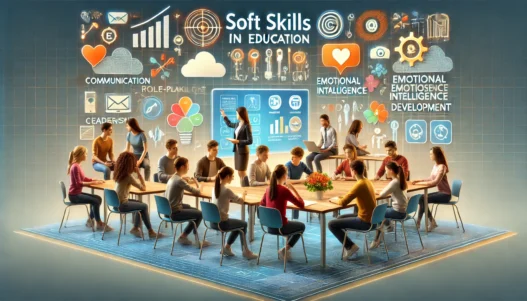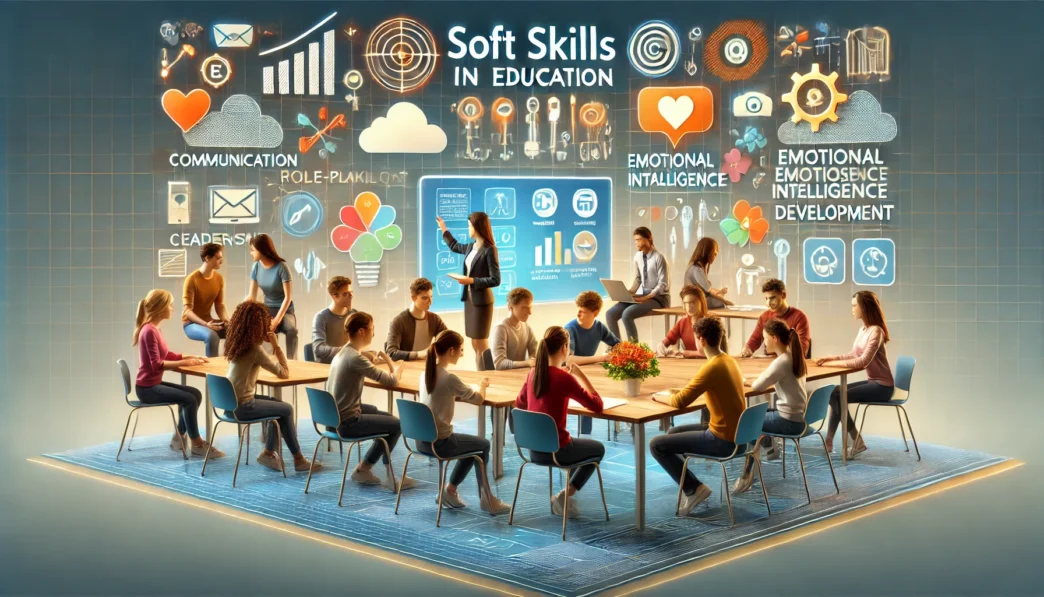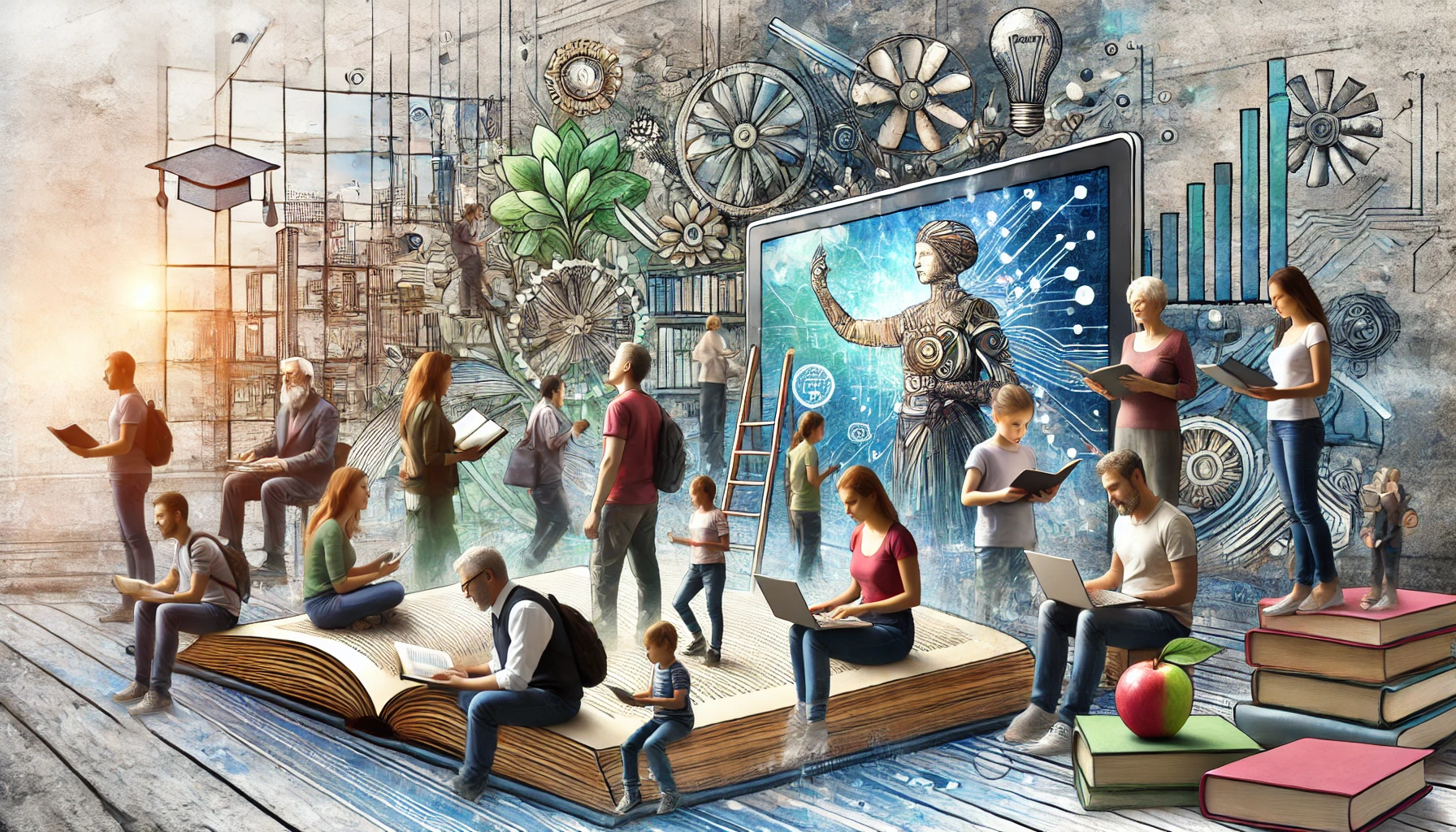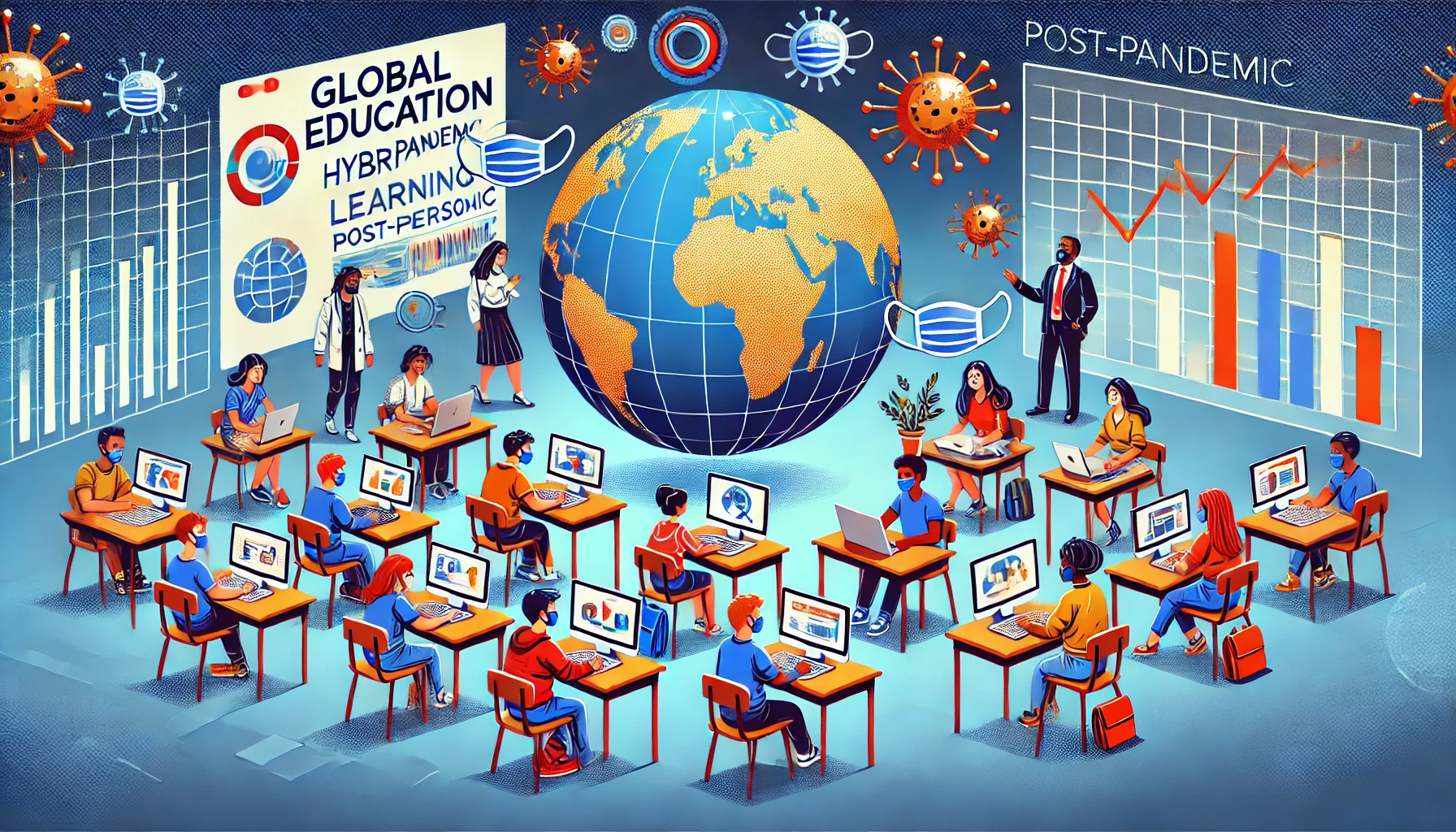In today’s fast-paced and ever-evolving world, academic knowledge alone is no longer sufficient to
prepare students for success. While technical expertise and subject-specific knowledge remain essential,
soft skills — such as communication, teamwork, adaptability, and emotional intelligence — have emerged
as critical components of modern education. These skills are not only instrumental in career success but
also in fostering personal growth and meaningful relationships. This article explores the role of soft skills
in modern education, their significance, methods for integrating them into curricula, and the challenges
and opportunities they present.
- Understanding Soft Skills
Soft skills are non-technical abilities that influence how individuals interact, collaborate, and build
relationships with others. Unlike hard skills, which can be taught through direct instruction and measured
through tests or certifications, soft skills are often more nuanced and involve personal attributes and
interpersonal effectiveness.
Some of the most essential soft skills include:
Communication Skills: The ability to articulate ideas clearly and listen actively.
Teamwork: Working collaboratively with others to achieve common goals.
Adaptability: Adjusting to new environments, challenges, or changes with resilience.
Problem-Solving: Analyzing situations and finding effective solutions.
Emotional Intelligence (EI): Recognizing, understanding, and managing emotions, both one’s
own and others’.
Leadership: Guiding and inspiring others toward success.
These skills are transferable across professions and industries, making them indispensable in today’s
dynamic job market and globalized world. - Why Soft Skills Matter in Modern Education
2.1. Bridging the Gap Between Academia and the Real World
While academic achievements demonstrate a student’s knowledge and intellectual capabilities, employers
increasingly value soft skills that enable effective collaboration, communication, and leadership.
According to a LinkedIn report, 92% of talent professionals and hiring managers agree that soft skills are
as important — or more important — than hard skills.
2.2. Enhancing Career Readiness
Employers seek candidates who can think critically, work well in teams, and navigate challenges. Soft
skills empower students to thrive in professional settings, where collaboration, adaptability, and problem-
solving are daily requirements.
2.3. Supporting Lifelong Learning
The rapid pace of technological advancement requires individuals to continuously learn and adapt. Soft
skills like adaptability and curiosity enable students to embrace lifelong learning, staying relevant in a
constantly changing world.
2.4. Promoting Personal Development
Soft skills are not just about career success; they also enhance personal growth. Emotional intelligence,
for example, helps individuals build healthy relationships, manage stress, and develop self-awareness,
contributing to overall well-being.
- Integrating Soft Skills into Modern Education
3.1. Project-Based Learning (PBL)
Project-based learning emphasizes collaboration, problem-solving, and critical thinking. By working on
real-world projects, students develop teamwork and communication skills while applying theoretical
knowledge in practical scenarios.
3.2. Role-Playing and Simulations
Role-playing exercises and simulations allow students to practice interpersonal skills in controlled
environments. For example, mock job interviews or business negotiations can help students build
confidence and refine their communication abilities.
3.3. Collaborative Learning
Group assignments and peer-to-peer interactions foster teamwork and communication. When students
work together to solve problems or complete tasks, they learn to navigate diverse perspectives and build
consensus.
3.4. Incorporating Emotional Intelligence (EI) Training
Programs that focus on emotional intelligence teach students to recognize and manage their emotions,
empathize with others, and handle interpersonal relationships effectively. These programs often include
mindfulness exercises, reflective practices, and conflict resolution training.
3.5. Extracurricular Activities
Clubs, sports teams, and community service projects provide opportunities for students to develop
leadership, teamwork, and organizational skills in real-world settings.
3.6. Embedding Soft Skills into Curriculum
Educators can integrate soft skills into traditional subjects by emphasizing collaboration, discussion, and
critical thinking. For example, English classes can include group debates, while science courses can
involve team experiments. - Soft Skills and Technology
Technology plays a dual role in soft skill development. On one hand, it provides tools and platforms for
collaboration, communication, and learning. On the other hand, excessive reliance on technology can
hinder interpersonal interactions.
4.1. Leveraging EdTech for Soft Skills Development
Online Collaboration Tools: Platforms like Microsoft Teams and Google Workspace facilitate
teamwork and communication in virtual environments.
AI-Powered Feedback: Tools like Grammarly and speech recognition software help students
refine their communication skills.
Virtual Reality (VR): VR simulations can provide immersive experiences for role-playing and
team-building exercises.
4.2. Balancing Technology Use
While technology offers significant benefits, educators must encourage face-to-face interactions to
develop empathy, emotional intelligence, and interpersonal skills. Striking this balance is key to fostering
well-rounded individuals. - Challenges in Incorporating Soft Skills in Education
5.1. Lack of Standardized Assessment
Unlike academic subjects, soft skills are challenging to measure objectively. The absence of standardized
assessment tools makes it difficult to evaluate progress and effectiveness.
5.2. Teacher Training and Awareness
Many educators lack the training or resources to incorporate soft skills into their teaching. Professional
development programs are needed to equip teachers with strategies for fostering these skills.
5.3. Overemphasis on Academic Performance
Traditional education systems often prioritize grades and test scores, leaving little room for soft skill
development. A shift in mindset is required to value these skills equally.
5.4. Cultural and Societal Barriers
In some cultures, traits like assertiveness or open communication may not be emphasized, making it
challenging to promote certain soft skills universally.
5.5. Resource Constraints
Implementing programs for soft skill development can be resource-intensive, requiring additional time,
funding, and support from institutions.
- Success Stories: Real-World Applications
6.1. Finland’s Holistic Approach
Finland is renowned for its education system, which emphasizes holistic development. Schools focus on
fostering creativity, problem-solving, and teamwork through project-based learning and cross-disciplinary
activities.
6.2. IBM’s P-TECH Model
IBM’s P-TECH schools combine technical education with soft skill development. Students participate in
mentorship programs, internships, and team projects, preparing them for professional success.
6.3. Emotional Intelligence Programs in India
Several Indian schools have introduced emotional intelligence programs that teach mindfulness, empathy,
and conflict resolution, improving students’ social and emotional well-being. - The Future of Soft Skills in Education
7.1. Increasing Importance in a Digital World
As automation and AI replace routine tasks, soft skills will become even more critical for roles requiring
creativity, collaboration, and emotional intelligence.
7.2. Lifelong Learning Ecosystems
Soft skills will play a central role in lifelong learning initiatives, helping individuals navigate career
changes, personal growth, and societal challenges.
7.3. Global Collaboration
In an interconnected world, cross-cultural communication and teamwork will be essential. Educational
systems must prepare students to thrive in diverse, global environments.
7.4. Integration with Emerging Technologies
Future innovations, such as AI tutors and immersive learning environments, will enhance soft skill
development, creating personalized and interactive experiences.
- Conclusion
The role of soft skills in modern education cannot be overstated. As the world becomes increasingly
interconnected and technology-driven, these skills are essential for personal, professional, and societal
success. By integrating soft skills into curricula, fostering real-world applications, and addressing
challenges, educators can prepare students not just for the workforce, but for life itself.
Soft skills are no longer an optional addition; they are a fundamental part of holistic education.
Empowering students with these skills will ensure they thrive in an ever-changing world, building
meaningful relationships, adapting to challenges, and driving innovation for a better future.





